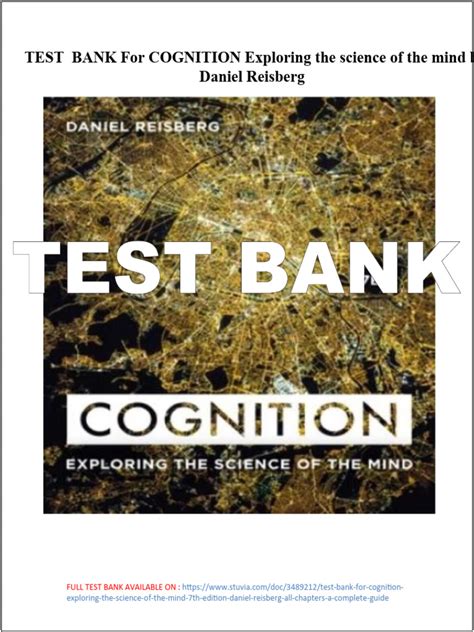Introduction

Embark on a cognitive odyssey as we delve into AP Psychology Module 6, uncovering the fascinating world of cognition and learning. From memory to thinking, from problem-solving to decision-making, this module illuminates the intricate workings of our cognitive abilities. With an arsenal of research-backed insights, we’ll empower you with a deeper understanding of how we perceive, process, and store information, paving the path to academic excellence.
Memory
Types of Memory
- Sensory Memory: The ultra-brief storage of sensory input, lasting less than a second (1⁄4 second for visual stimuli, 4 seconds for auditory).
- Short-Term Memory (STM): Holds information in a readily accessible state for a few seconds to minutes, with a capacity of 5-9 items.
- Long-Term Memory (LTM): Stores vast amounts of information for indefinite periods, with a seemingly unlimited capacity.
Encoding and Retrieval
- Encoding: The process of transforming information into a form that can be stored in memory.
- Retrieval: The process of accessing information stored in memory.
- Recall: Retrieving information without the use of cues.
- Recognition: Identifying information that has been previously encountered.
Thinking and Problem-Solving
Concepts and Schemas
- Concepts: Mental representations of categories or classes of objects or events.
- Schemas: Organized knowledge structures that represent our expectations about the world.
Problem-Solving
- Algorithms: Step-by-step procedures guaranteed to find a solution to a problem.
- Heuristics: Mental shortcuts that typically lead to a solution, but not always optimally.
Decision-Making
Cognitive Biases
- Confirmation Bias: The tendency to seek out information that confirms our existing beliefs.
- Availability Bias: The tendency to judge the likelihood of an event based on how easily we can recall examples of it.
Risk and Uncertainty
- Prospect Theory: The tendency to weigh gains and losses differently, resulting in risk-averse behavior for gains and risk-seeking behavior for losses.
- Decision Framing: The way in which a decision is presented influences the choice made.
The Importance of Cognition and Learning
Why Cognition Matters
- Navigating the complexities of everyday life.
- Acquiring and utilizing knowledge and skills.
- Interacting effectively with others.
How Cognition Benefits
- Education: Improved memory and problem-solving abilities enhance learning outcomes.
- Work: Cognitive skills are essential for job performance and career advancement.
- Personal Growth: Mental agility supports personal development and well-being.
Table 1: Types of Memory and Their Characteristics
| Type of Memory | Duration | Capacity | Encoding | Retrieval |
|---|---|---|---|---|
| Sensory Memory | Less than a second | Unlimited | Automatic | Automatic |
| Short-Term Memory | Seconds to minutes | 5-9 items | Rehearsal | Recall, Recognition |
| Long-Term Memory | Indefinite | Unlimited | Elaboration, Organization | Recall, Recognition |
Table 2: Cognitive Biases and Their Impact
| Cognitive Bias | Description | Impact |
|---|---|---|
| Confirmation Bias | Seeking information that supports existing beliefs | Distorts decision-making |
| Availability Bias | Judging likelihood based on recall ease | Overestimates common occurrences |
| Hindsight Bias | Viewing past events as more predictable than they were | Impairs learning from mistakes |
Table 3: Pros and Cons of Decision-Making Heuristics
| Heuristic | Pros | Cons |
|---|---|---|
| Representativeness | Fast and intuitive | Can lead to errors when categories are poorly defined |
| Availability | Easily accessible information | Vulnerable to biases |
| Anchoring | Provides a starting point | Can restrict consideration of other options |
Table 4: Applications of AP Psychology Module 6 Concepts
| Concept | Application |
|---|---|
| Episodic Memory | Personalized education plans tailored to individual learning styles |
| Schema Theory | Improved marketing strategies by understanding consumer expectations |
| Problem-Solving Strategies | Enhanced creativity and innovation in business and research |
| Decision-Making Biases | Identifying and mitigating cognitive errors in financial planning and policymaking |
FAQs
-
How can I improve my memory?
– Use effective encoding strategies (e.g., elaboration, organization).
– Practice active recall.
– Get充足的睡眠。 -
What are some cognitive biases I should be aware of?
– Confirmation Bias
– Availability Bias
– Hindsight Bias -
How can I make better decisions?
– Consider multiple perspectives and gather diverse information.
– Be aware of cognitive biases and actively work against them.
– Use decision-making frameworks (e.g., cost-benefit analysis, decision trees). -
How does cognition impact my everyday life?
– Influences decision-making, problem-solving, memory, and learning.
– Shapes our perceptions and interactions with the world around us. -
What are some real-world applications of AP Psychology Module 6 concepts?
– Educational planning
– Healthcare diagnosis and treatment
– Business decision-making
– Cognitive therapy -
How can I delve deeper into cognition and learning?
– Explore specialized books and articles.
– Attend workshops and conferences.
– Collaborate with researchers and professionals in the field. -
What are some innovative applications of AP Psychology Module 6 concepts?
– Personalized learning platforms leveraging machine learning.
– Artificial intelligence systems incorporating cognitive biases to improve decision-making.
– Neuroergonomics to optimize workplace design for cognitive performance. -
How can I stay updated on the latest research in cognition and learning?
– Follow academic journals (e.g., Cognitive Psychology, Journal of Experimental Psychology: Learning, Memory, and Cognition).
– Attend conferences (e.g., Cognitive Science Society, Society for Neuroscience).
– Engage with online communities and forums (e.g., ResearchGate, LinkedIn).
Conclusion
Embracing the knowledge and insights of AP Psychology Module 6 empowers us to comprehend the dynamic interplay between cognition and learning. By mastering the art of memory, thinking, problem-solving, and decision-making, we unlock the potential to excel academically, navigate life’s challenges, and contribute meaningfully to society. Let us continue our journey with curiosity and dedication, unlocking the secrets of the human mind to shape a brighter future.
